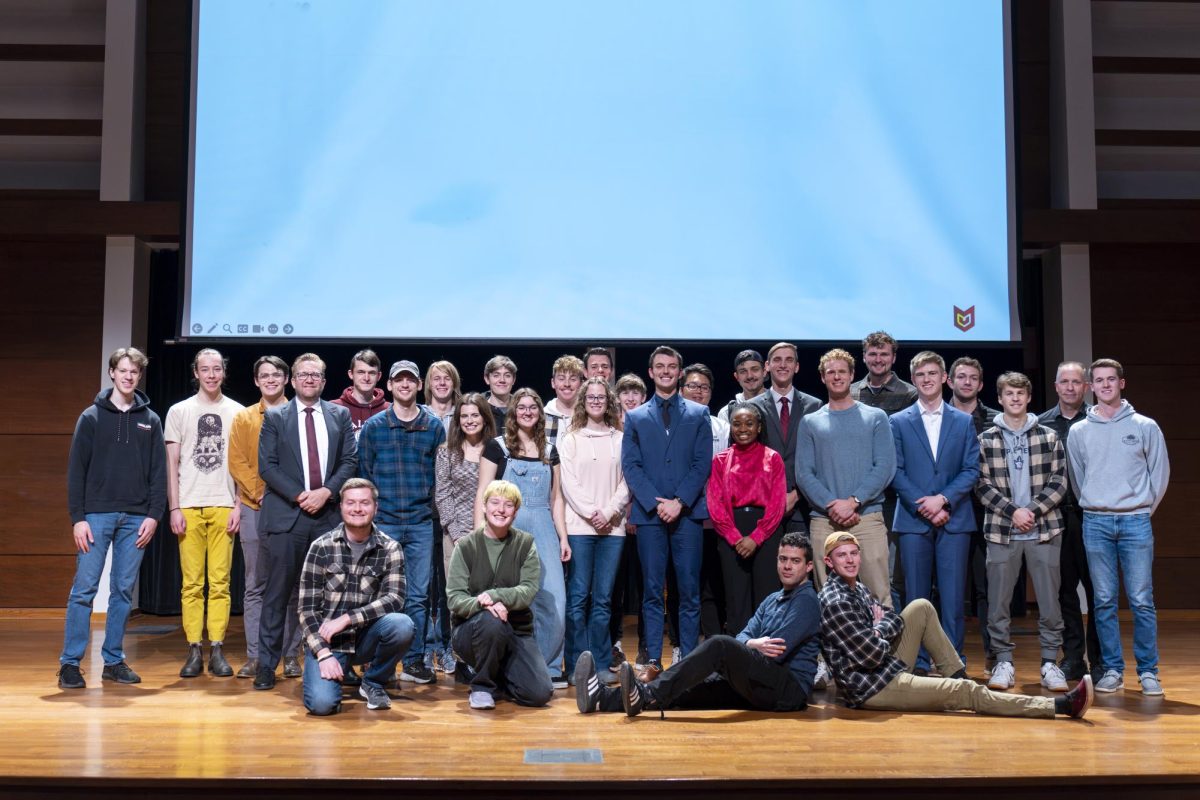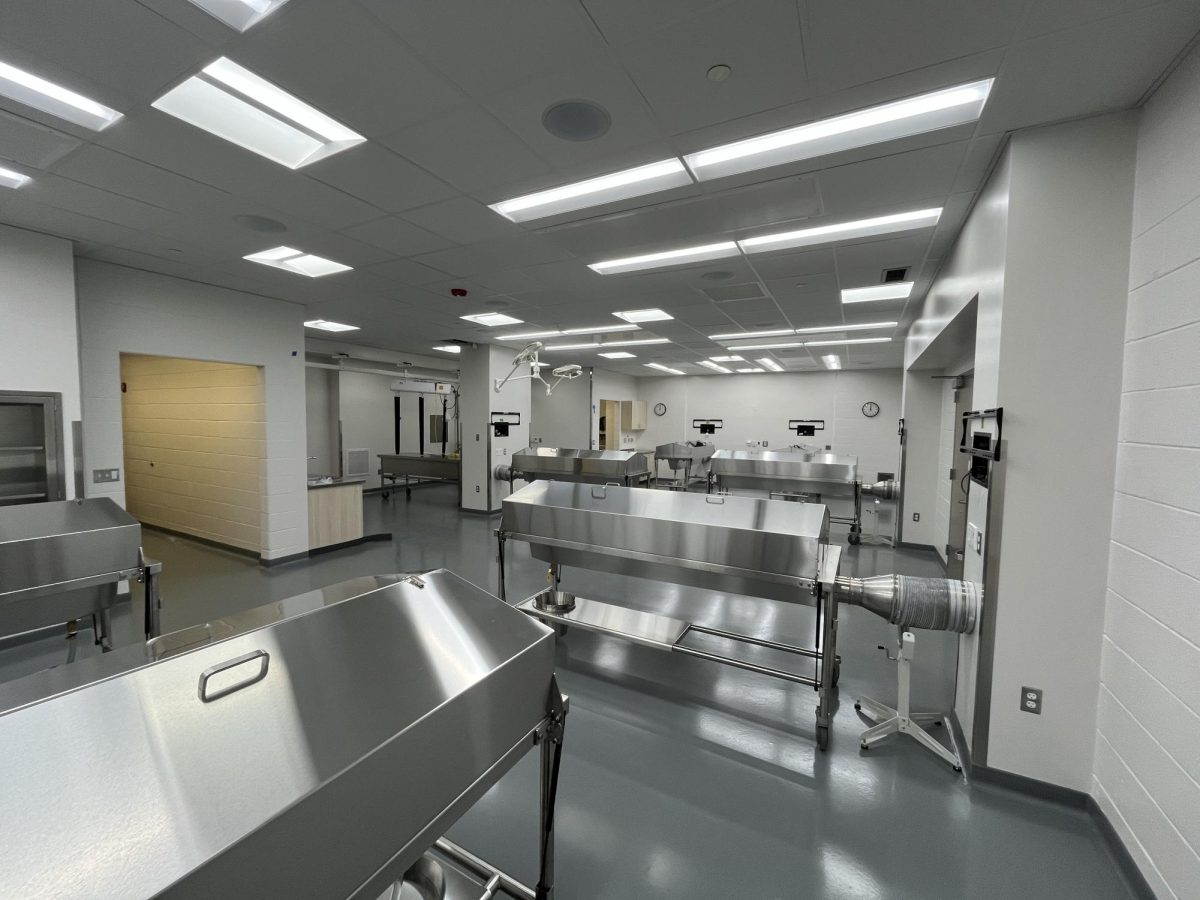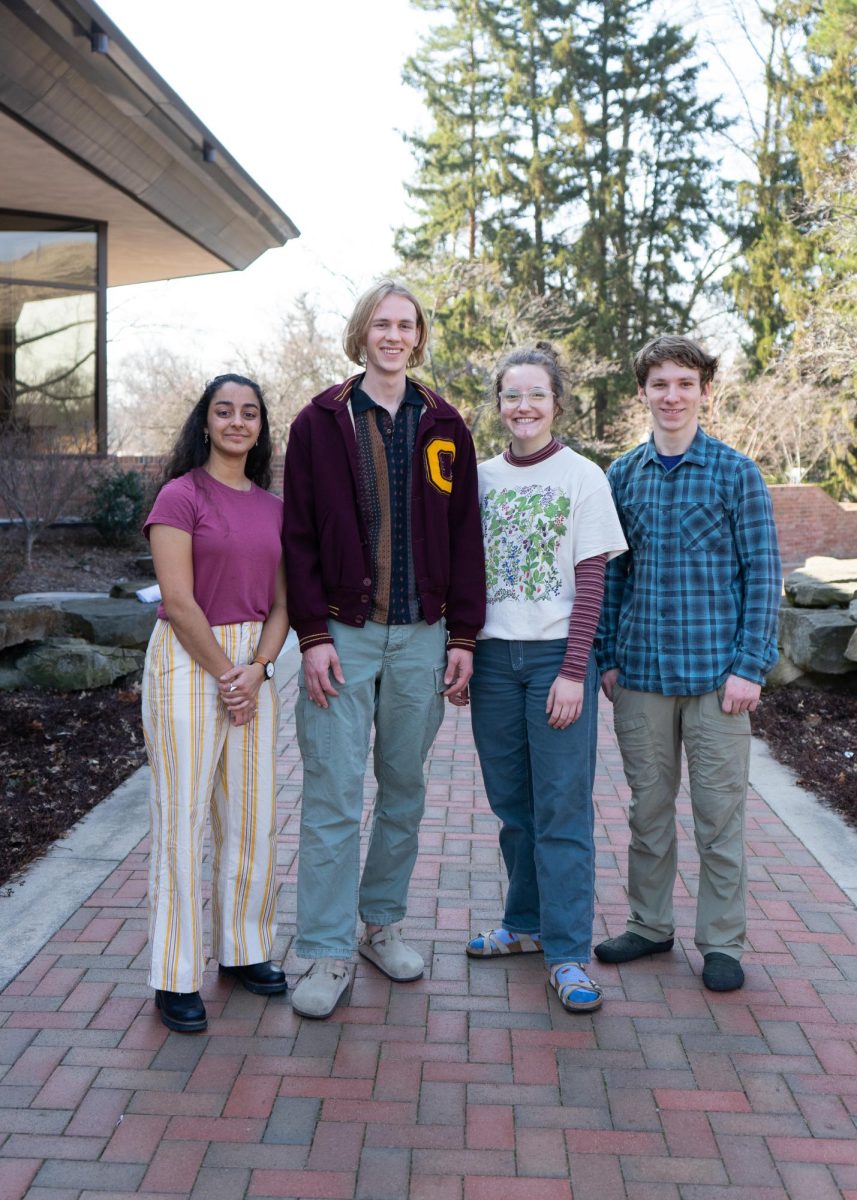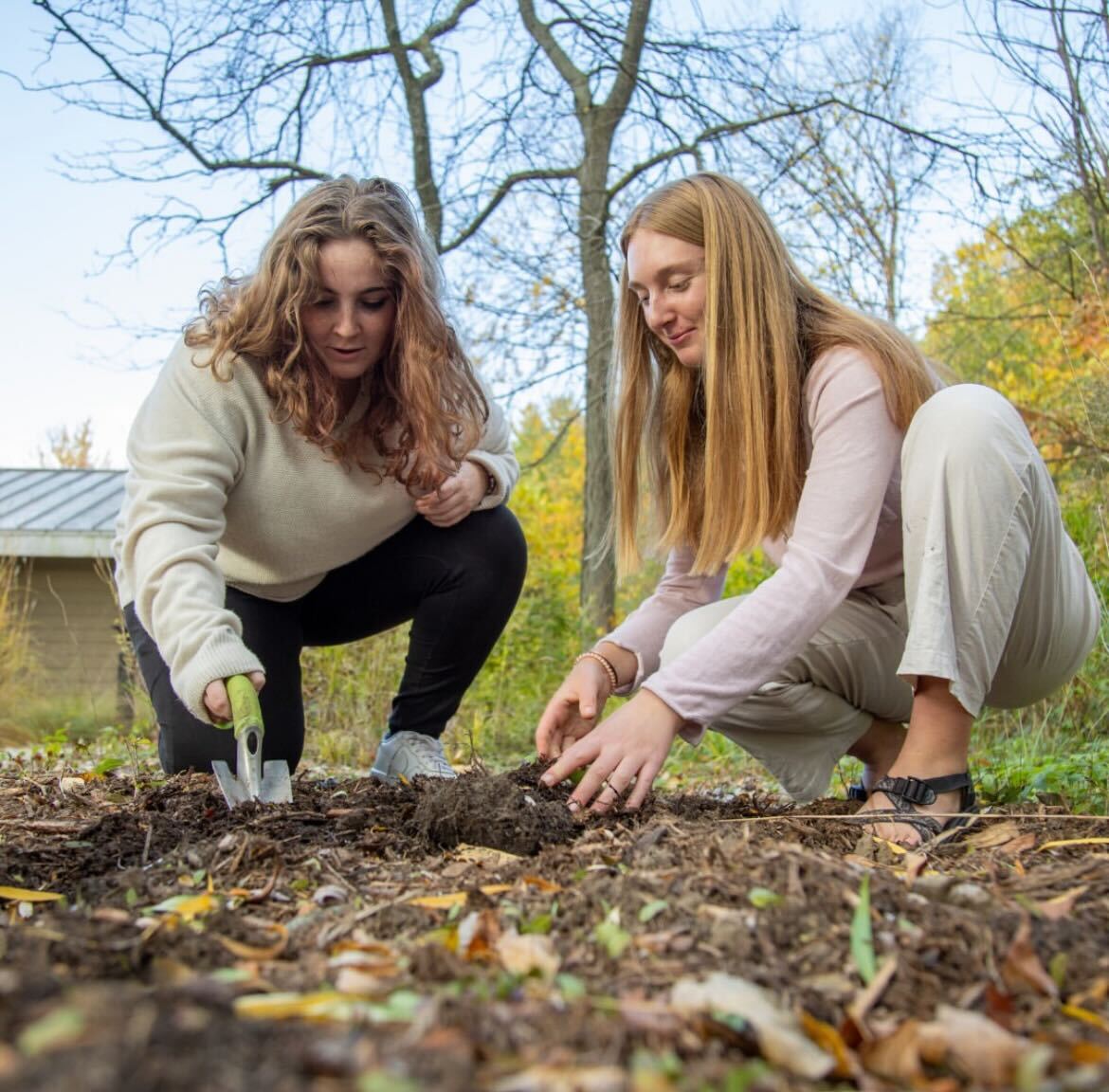Every year, Calvin’s ENGR-333 students are challenged with a practical question about increasing Calvin’s sustainability. In 2021, it was “What would it take to get Calvin off the grid?” In 2022, it was “What would it take to eliminate Calvin’s natural gas-related net CO2 emissions from its heating?”
The fruit of this year’s question, “What earlier year should Calvin University choose for its carbon neutrality date?” has provided a “first draft plan” for the administration to potentially move forward, according to Matt Heun, an engineering professor who teaches the class.
The process
These questions –– as simple as they may appear –– take students a whole semester to answer. To tackle the complexity of the problem, each year students from both class sections are split into four groups; electricity, heating, efficiency and funding.
Each team has a student leader; this year, Stuart Johnston led the heating team, David Harris led the electricity team, Panashe Makuvaro led the efficiency team and Michael Lanning led the finance team.
As the teams reached their conclusions, they met with Calvin faculty and administrators –– such as Dirk Pruis, Calvin’s vice president for finance and chief financial officer –– to present their findings, according to Heun.
The presentation
Near the semester’s end, the four team leaders gave a public presentation in the CFAC Recital Hall on Dec. 5, where they offered a plan for Calvin to go carbon neutral by 2030.
In 2017, under President Michael Le Roy, Calvin committed to becoming carbon neutral by 2057. However, President Wiebe Boer challenged this deadline, commissioning ENGR-333 students to find an earlier date.
“2057 is a long time away, especially given the climate emergency we now face. As Christians, we know we must care for God’s creation, and we can certainly do better here than Shell –– which is an oil company,” Boer said in his introduction to the student presentations. Before becoming president of Calvin, Boer was the CEO of All On, a renewable energy investment firm funded by Royal Dutch Shell –– whose set date for carbon neutrality was 2050.
“The initial date selected by President Roy –– which was 2057 –– was appropriately aspirational, but didn’t have a plan associated with it,” Heun told Chimes. “It’s a remarkable achievement that [the students] were able to develop a comprehensive and realistic plan within the course of the semester.”
The students’ CFAC presentation has generated interest elsewhere as well. The team is “giving the same seminar to the Geology department, because Professor Bascom believes this topic is so important and relevant to students/faculty, and this will only help keep awareness and talks going about carbon neutrality,” Johnston said.
Additionally, the four team leaders have been invited “to discuss their project’s potential contribution to advancing Calvin’s commitment to carbon neutrality,” with Calvin’s Energy and Environmental Sustainability Committee (EESC), Lanning said. This meeting, scheduled for Feb. 16, “is a direct outcome of our presentation,” according to Lanning.
Moving forward
“I don’t know if I am being naive,” Johnston told Chimes, “but I truly believe that there will start to be changes around Calvin’s sustainability in the near future. I don’t think our class this year can take all the credit for this movement, as past ENGR-333 classes have worked on ways to improve Calvin’s sustainability as well, along with President Boer’s background in solar energy, which he already ‘made moves’ in.”
Calvin isn’t new to solar power. The university has installed solar panels on top of the Bunker Interpretive Center and the Science building.
However, moves toward further solar energy expansion have stalled. In the summer of 2022, Calvin entered a memorandum of understanding (MOU) with Sun FundED, in hopes of exploring the possibility of solar power on campus. Last semester, Calvin did not continue that MOU.
“It was clear that moving forward with [Sun FundED] didn’t make sense for a few reasons,” Dirk Pruis, Calvin’s chief financial officer, told Chimes in an email last fall, “one of which was the economics of the agreement, which would clearly not benefit Calvin long-term. To be clear, this does not mean we will not pursue solar in the future, it just means we will not be pursuing it with [Sun FundED] at this time.”
This change gave Calvin the chance to explore alternative options, according to Pruis. Geothermal energy, which the ENGR-333 student presentation discussed heavily, is currently slated to heat and cool the planned new soccer stadium and football building, and, according to Johnston, possibly the proposed Commons Union building.
Regardless of how it happens — “I could easily see Calvin not choosing ENGR-333’s plan, but instead moving to fully solar-powered, with Boer’s background,” Johnston said — he is confident Calvin will move the university’s carbon neutrality date before 2057.








